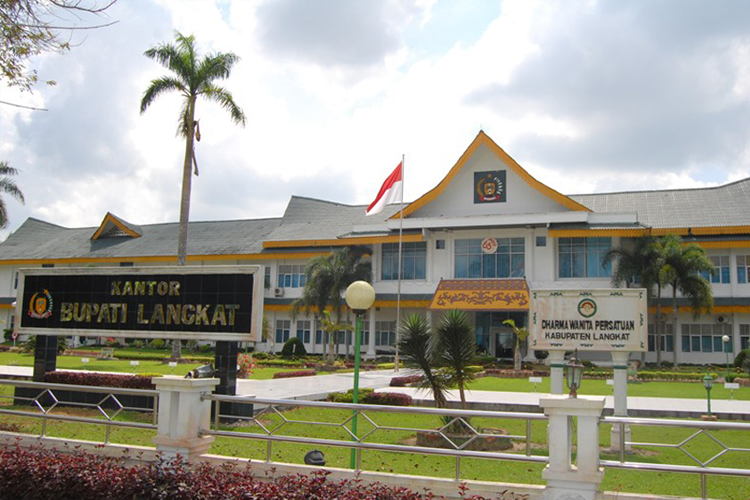Empowering Bureaucratic Performance: A Deep Dive into ekinerja.langkatkab.go.id/sipeduk

TIMESINDONESIA, JAKARTA – In the era of digital governance, efficient public service delivery is more crucial than ever. Governments around the world are under increasing pressure to modernize bureaucratic systems, improve transparency, and meet the growing expectations of citizens. In response to these challenges, the local government of Langkat Regency, North Sumatra, has launched a powerful administrative tool accessible at ekinerja.langkatkab.go.id/sipeduk. This integrated platform merges e-performance tracking and population administration into a unified system, positioning Langkat as a regional leader in public sector innovation.
This article explores the core features, objectives, and broader implications of the system, providing a comprehensive view of how ekinerja.langkatkab.go.id/sipeduk is reshaping local governance.
Advertisement
The Purpose Behind the Platform
The primary aim of ekinerja.langkatkab.go.id/sipeduk is to enhance the efficiency, transparency, and accountability of civil service performance. The term "e-Kinerja" refers to an electronic system for managing employee performance. "SIPEDUK" (Sistem Informasi Pelayanan Administrasi Kependudukan) refers to the population administration service. By integrating these two critical functions, the Langkat Regency government seeks to create a seamless workflow for internal employee evaluation and external public service delivery.
This digital initiative aligns with the Indonesian government's broader Smart City and e-Government programs, which advocate for the use of technology to modernize administrative systems and improve citizen engagement.
Key Features of ekinerja.langkatkab.go.id/sipeduk
The platform provides a host of functionalities that facilitate daily administrative tasks for both civil servants and supervisory bodies. Among the standout features are:
1. Real-Time Performance Tracking
Government employees in Langkat Regency are required to log their daily tasks and outputs into the system. This allows supervisors to monitor workloads in real-time, evaluate productivity, and ensure that all tasks align with strategic objectives.
2. Objective Performance Appraisal
The platform enables data-driven evaluations, eliminating the subjectivity often associated with traditional performance reviews. Criteria such as punctuality, task completion, responsiveness, and quality of service are automatically recorded and scored, creating a more transparent and merit-based performance appraisal system.
3. Integrated Civil Data Management
By combining e-Kinerja with SIPEDUK, civil servants who are responsible for managing demographic services (like ID issuance, family cards, and migration data) can seamlessly cross-reference population databases. This ensures that services are delivered accurately, quickly, and with minimal errors.
4. User-Friendly Dashboard
Despite its powerful capabilities, ekinerja.langkatkab.go.id/sipeduk boasts a clean, intuitive interface. The design emphasizes ease of use to accommodate civil servants at all levels of technological literacy, thereby reducing resistance to digital adoption.
Impacts on Local Governance
The integration of performance monitoring and demographic services into a single portal has had a transformative impact on the day-to-day workings of Langkat Regency’s public sector. Key improvements include:
a. Efficiency Gains
Automated reporting and centralized data access have significantly reduced the administrative workload. Tasks that once required multiple forms and physical approvals can now be completed online, freeing up staff to focus on service delivery rather than paperwork.
b. Greater Accountability
When performance data is accessible to both supervisors and higher administrative authorities, there’s a stronger incentive for civil servants to meet their responsibilities diligently. This leads to more reliable public services and improved public trust in government institutions.
c. Policy-Driven Decision Making
With accurate performance metrics and detailed population data, local leaders can make informed policy decisions. Whether allocating budgets, staffing departments, or responding to demographic shifts, the insights from the platform help ensure that resources are used effectively.
Challenges in Implementation
While the potential of ekinerja.langkatkab.go.id/sipeduk is significant, the system is not without its challenges. Digital transformation in public administration often faces obstacles such as:
Digital Literacy Gaps: Not all government staff are comfortable with new technologies, especially older employees who may be more accustomed to traditional methods.
Internet Reliability: In certain remote areas of Langkat, stable internet connectivity may be an issue, affecting access to the system.
Data Privacy Concerns: The management of sensitive personal data necessitates robust cybersecurity measures, and maintaining user trust requires rigorous data protection standards.
Building Toward the Future
To realize the full benefits of ekinerja.langkatkab.go.id/sipeduk, ongoing enhancements are necessary. Potential future developments may include:
• Mobile Integration
Developing a mobile application for the platform would increase accessibility for field officers and supervisors, particularly in rural areas.
• Public Feedback Loop
Introducing citizen feedback into the performance evaluation process could provide an additional layer of accountability. Residents who use services could rate their experiences, and this feedback could be used in performance reviews.
• Inter-Agency Collaboration
Expanding the platform to facilitate communication between multiple departments (e.g., education, health, and social welfare) could create a truly integrated service model, reducing redundancy and improving coordination.
A Model for Other Regions
The implementation of ekinerja.langkatkab.go.id/sipeduk serves as a valuable case study for other regional governments in Indonesia. By demonstrating that digital platforms can enhance both internal administration and public-facing services, Langkat Regency offers a roadmap for modern governance.
Crucially, the project highlights how public institutions can evolve to meet the expectations of today’s citizens — who demand speed, transparency, and accountability — without compromising on structure or reliability.
Conclusion
In conclusion, the portal at ekinerja.langkatkab.go.id/sipeduk marks a pivotal advancement in Langkat Regency's approach to public administration. By merging employee performance tracking with population administration in one digital ecosystem, the platform reflects a commitment to modern governance practices that prioritize efficiency, transparency, and data integrity.
As Indonesia continues to embrace e-Government initiatives, Langkat’s experience provides valuable lessons on how to balance innovation with practicality. By addressing implementation challenges and continually upgrading system capabilities, ekinerja.langkatkab.go.id/sipeduk has the potential to become a national benchmark for digital public service reform.
Whether you’re a government official, public policy researcher, or simply a citizen interested in the future of local governance, this integrated digital system is worth watching — and learning from.
**) Ikuti berita terbaru TIMES Indonesia di Google News klik link ini dan jangan lupa di follow.
| Editor | : Dhina Chahyanti |
| Publisher | : Rochmat Shobirin |

